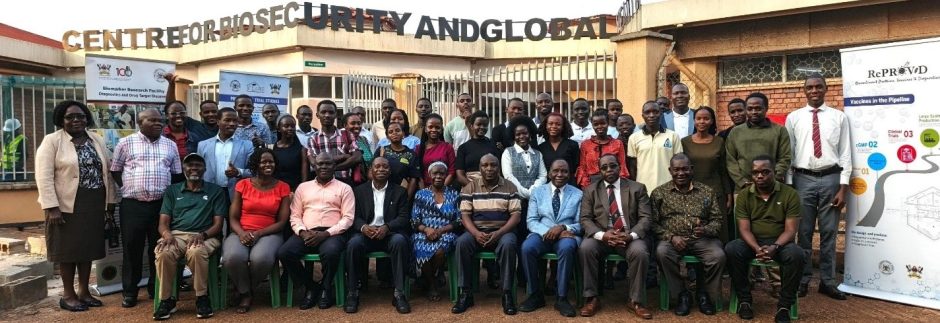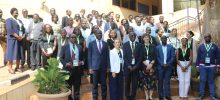Global Scholar Prof. John B. Kaneene Pushes for Structural Change in Ugandan Universities to Elevate Research and Innovation
Renowned academic Prof. John B. Kaneene has called for sweeping structural reforms across Ugandan universities, including Makerere University, to enhance their global competitiveness and research output. Speaking at a forum on science and innovation, held on August 26th at the College of Veterinary Medicine, Animal Resources and Biosecurity (CoVAB), Makerere University, Prof. Kaneene emphasized the urgent need for improved facilities to support active research participation.
He urged institutions to revamp their reward systems, noting that scholars who achieve significant milestones should be recognized in line with their contributions. “Success must be incentivized,” he said, adding that such recognition would motivate researchers and elevate academic standards.
The guest lecture was held under the theme “Industrial Biomedical Research and Innovation: Lessons from Michigan State University for Uganda’s New Industrial STI Dispensation.” The session explored the transformative role of universities in enhancing human wellbeing, societal development, and economic growth. It offered critical insights into institutional frameworks such as tenure and promotion, innovation and research ecosystems, and mentoring and incentive structures—drawing valuable lessons from Michigan State University to inform Uganda’s evolving science, technology, and innovation landscape.
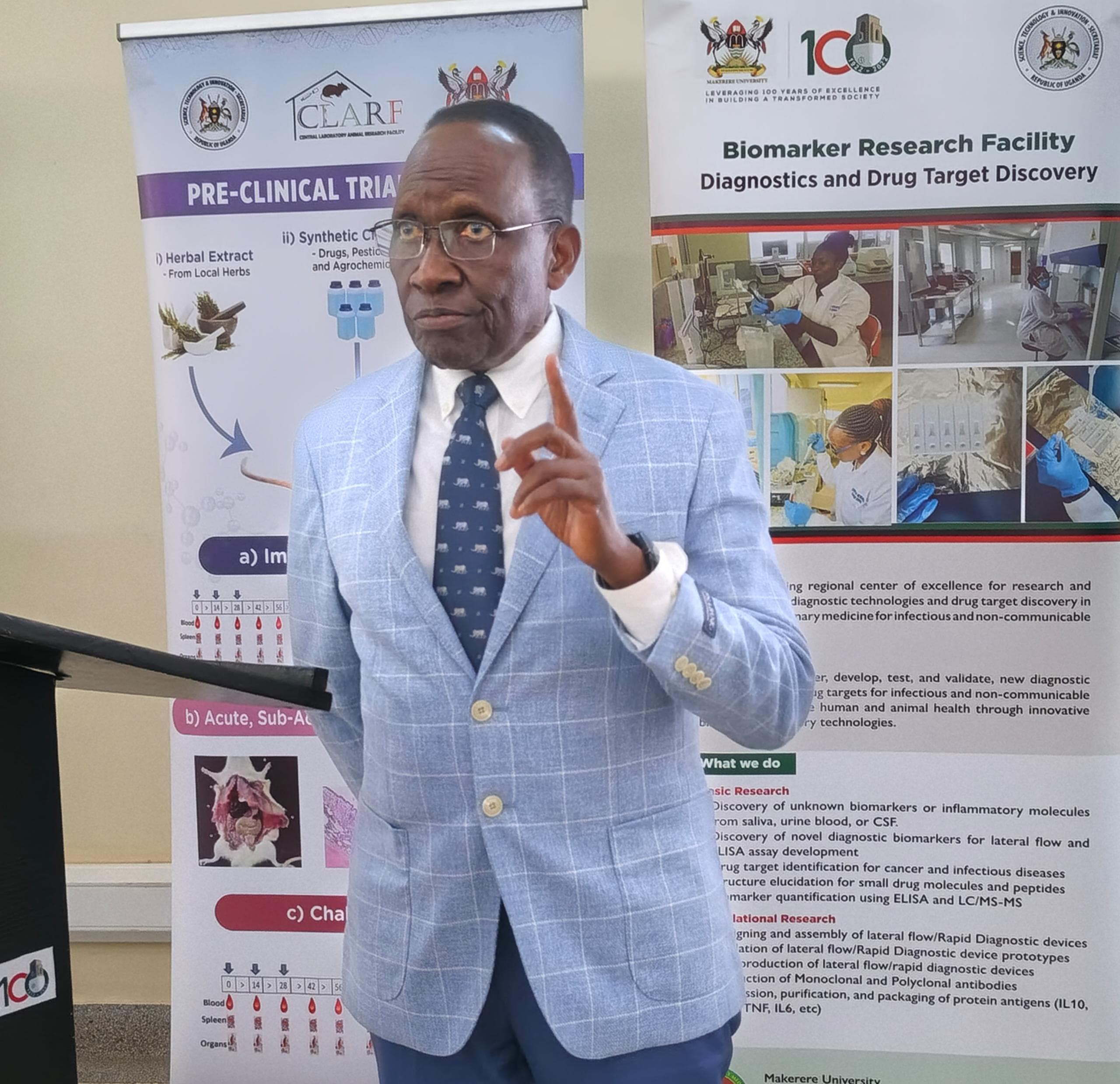
Prof. John B. Kaneene from Michigan State University was the Guest Speaker at the Science and Innovation forum at CoVAB, Tuesday, 26th August 2025.
At the discourse attended by scientists, prodigy Scientists, administrators, and regulators of Scientists, Prof. Kaneene also criticized the current promotion framework, calling for stricter, merit-based criteria free from political interference. He proposed a more rigorous system for academic progression, from Assistant Lecturer to Lecturer, Senior Lecturer, and ultimately Professor. “The title of Professor should be earned through demonstrable excellence in both research and teaching,” he stated, arguing that current standards fall short.
In addition to structural reforms, Prof. Kaneene highlighted the need to improve the quality and quantity of academic publications. He advocated for a shift from basic science to industrial and translational research, where universities produce innovations that directly benefit public health and economic development. “We must bridge the gap between research and real-world solutions,” he said.
Prof. Kaneene concluded by urging the Ugandan government to recognize universities as engines of national progress. He called for increased funding, better infrastructure, and targeted support for top scientists. “With the right investment, our universities can drive economic growth and improve the health of our communities,” he affirmed.
Speaking at the opening of the event, Ms. Brenda Nakazibwe, Bureau Chief, Pathogen Economy at the Science, Technology and Innovation (STI) Secretariat under the Ministry of Science, Technology and Innovation, reiterated the government’s commitment to advancing Uganda’s pathogen economy and strengthening its scientific research ecosystem. She highlighted the Secretariat’s role in supporting research development and fostering ecosystem establishment as Uganda moves toward sustainable growth. She emphasized that the bureau is actively working to position science and innovation as key drivers of economic transformation.
Ms. Nakazibwe commended the presentation by Prof. John B. Kaneene, a distinguished U.S.-based academic, describing his insights as highly relevant to both scientists and the general public. She acknowledged his longstanding contributions to Uganda’s scientific landscape, particularly his involvement in the foundation of the STI Open Platform (STI OP), formerly known as the Presidential Scientific Initiative on Epidemics (PRESIDE). The PRESIDE initiative was instrumental in fast-tracking research and innovation in vaccines, drugs, and therapeutics in response to emerging diseases and public health threats.
She further emphasized the importance of the issues raised during the discussion, including innovation, research incentives, academic tenure, and promotion systems. Ms. Nakazibwe described these as “tangible and actionable areas” that must be addressed across all levels of Uganda’s scientific and academic institutions.
“These are not abstract ideas and practical reforms that can strengthen our research culture and ensure our scientists are empowered to deliver solutions for national development,” she stated.
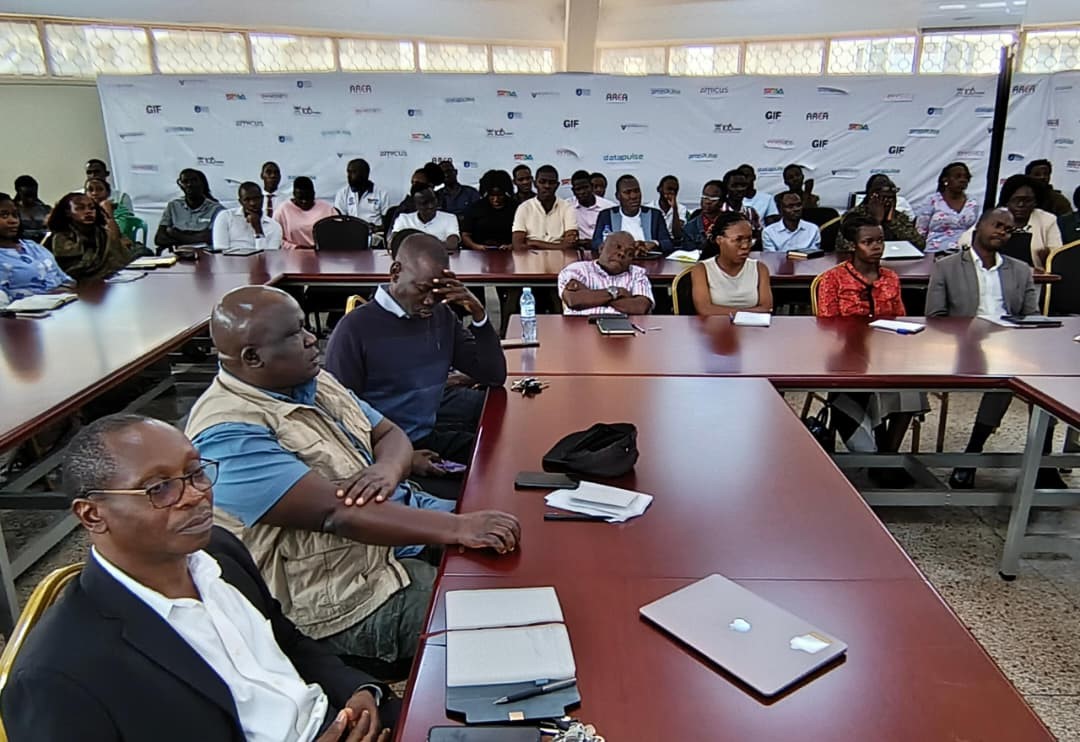
(L) Prof. Enock Matovu, Director CEBIGH, where the discourse was hosted
While introducing Prof. John B. Kaneene, Prof. John David Kabasa emphasized that the discourse stemmed from a longstanding consortium between universities in the United States and Africa. This partnership has been instrumental in driving major advancements in Uganda’s veterinary and biosecurity sectors. Speaking at the strategic engagement on science and innovation, Prof. Kabasa highlighted the consortium’s focus on capacity building in the integrated management of transboundary diseases and zoonoses, noting that it laid the foundation for transformative change in the country’s scientific and academic landscape.
He noted that the partnership’s strength and future-oriented vision led Makerere University to approve a development strategy and investment plan that upgraded its Faculty of Veterinary Medicine into the College of Veterinary Medicine, Animal Resources and Biosecurity. “Biosecurity became central to our mission because we are focused on global biosecurity,” Prof. Kabasa said.
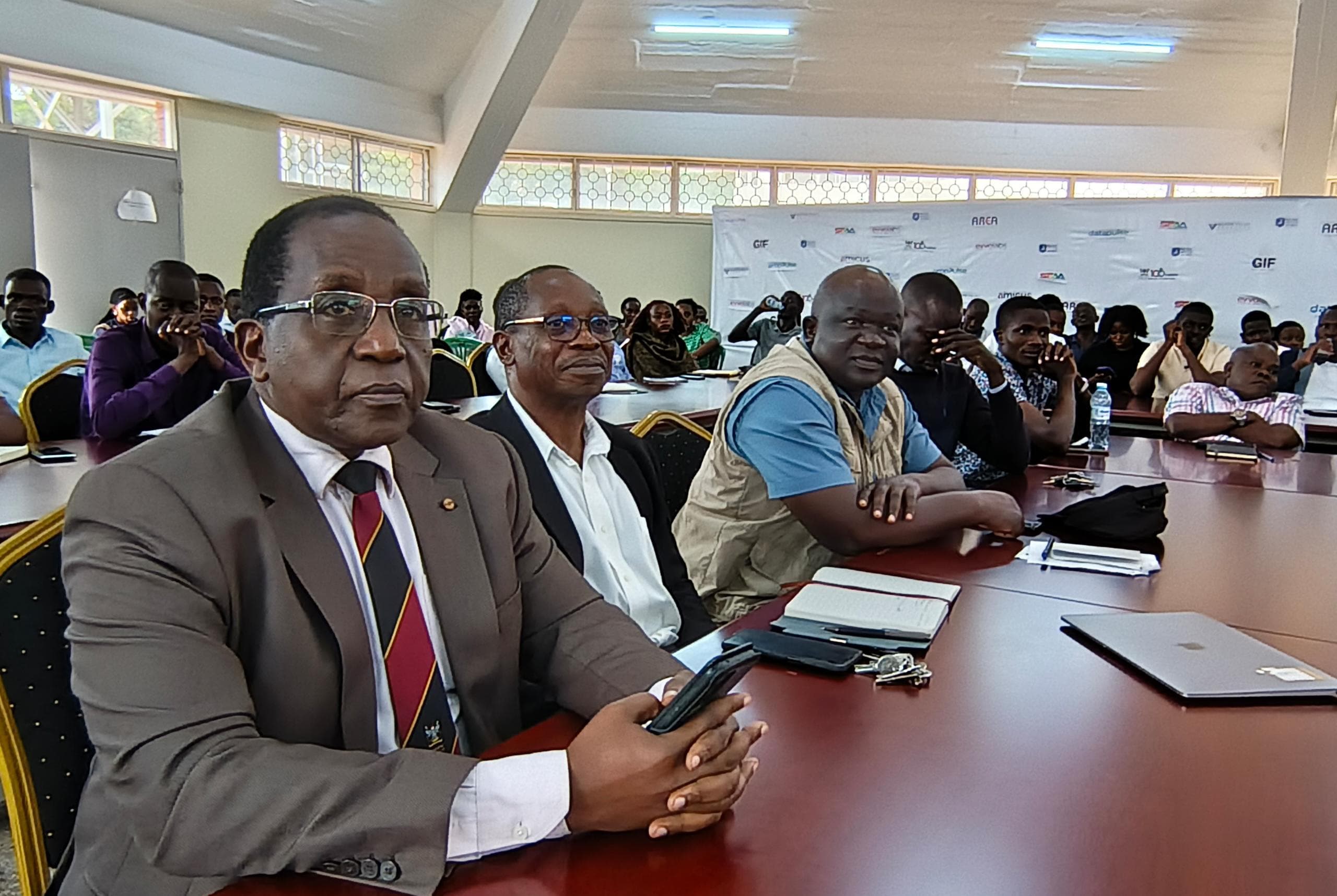
Prof. John David Kabasa explained that the discourse stemmed from a longstanding consortium between universities in the United States and Africa
Over the past 15 years, he said, the consortium has yielded significant milestones, including the establishment of a Master’s program in Biosecurity, ongoing development of a PhD in Biosecurity, and the creation of a Centre for Biosecurity and Global Health. These efforts are now being aligned with the Ministry of Science, Technology, and Innovation to promote Industrial Biomedical Research and Innovation, key pillars of Uganda’s emerging industrial bioeconomy under the pathogen economy framework championed by His Excellency, the President of Uganda.
Prof. Kabasa, alongside Prof. John B. Kaneene and other founding scientists, announced plans to elevate the consortium’s work to a new level, with a renewed focus on global biosecurity and industrial bioeconomy. He revealed that partners mentored through the original initiative, including directors from the National Agricultural Research Organisation (NARO), senior scientists at the ministry level, and academics from other universities, are injecting fresh energy into the collaboration.
“We are now engaging to define how universities can lead national transformation, and what strategic steps they must take to reposition themselves,” Prof. Kabasa stated. He confirmed that a series of follow-up meetings will be held to chart the path forward.

Dr. Monica Namayana, Centre Manager CEBIGH
The Centre for Biosecurity and Global Health (CEBIGH) is one of the specialized units established at Makerere University, whose creation is part of a broader vision to develop a regional veterinary college through the College of Veterinary Medicine, Animal Resources and Biosecurity (CoVAB). As a key research and development entity, CEBIGH plays a pivotal role in repositioning CoVAB as a leading driver of scientific innovation, strategic research, and public service both nationally and globally. Through its work, CEBIGH is emerging as a major contributor to Uganda’s growing pathogen economy.
By Harriet Musinguzi


